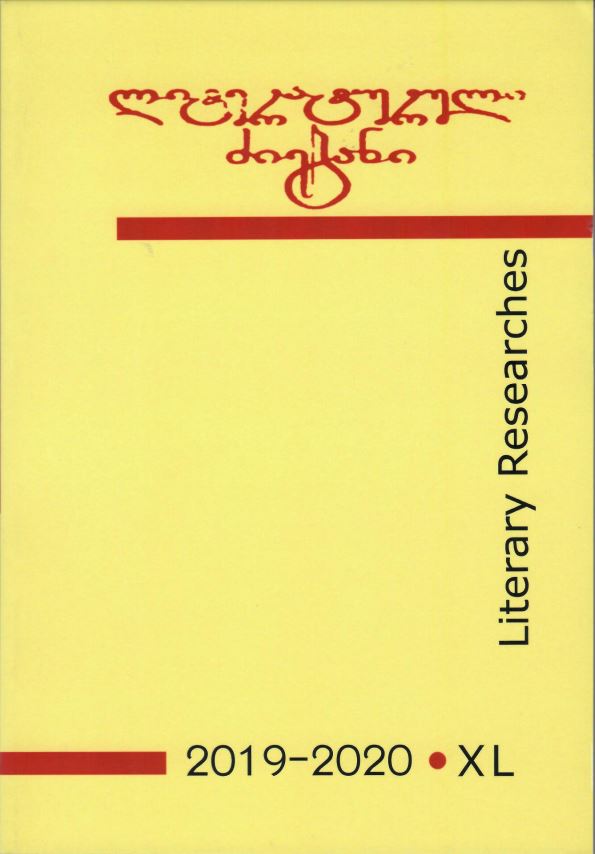Published 2020-10-20
Keywords
- Postmodernism,
- Georgian Literature,
- Novel,
- Narrative
How to Cite
Abstract
The contemporary Georgian novel is a remarkable eclectic phenomenon in many ways. It has changed in the same way as processes in world literature, we mean primarily postmodern searches. Worldwide market economics, the commercialization of art have given literature new tasks. The article shows an important tendencies on examples of novels by five Georgian authors (Besik Kharanauli, Archil Kikodze, Lasha Imedashvili, Zurab Samadashvili, Zviad Kvaratskhelia). Based on the analysis of the literature works under discussion, we can conclude that the modern Georgian novel has the same characteristics as contemporary world literature. these are: 1. Using traditional and innovative methods of narration; Genre experiments; 2. The application of
narrative techniques typical of postmodernism; 3. Reflections on acute socio-political, cultural and political events taking place in Georgia or in the world; 4. Psychological-philosophical reconsideration of traumas gained from ancient and recent historical experiences, especially those of the Soviet era; 5. Themes of human destiny, its choices, the crisis of humanism and its overcoming; 6. Interrelation of technological progress and culture; 7. Emphasis on existential and ontological issues.
The article presents the narrative features of the contemporary Georgian novel, the structure of the narrative, the storytelling style, the storytelling manner, the style of composition, and the features of drawing the characters. The article analyzes the artistic principles of the modern Georgian novel. Critics of the novel have long been skeptical that he has run out of power and is dying. Nevertheless, it proved durable and viable. This is evidenced by the great interest in reading large literature texts today. In the modern Georgian novel there is a mix of genres, mosaics, diversity of narrative. In the twenty-first century, there are more game elements, intertextuality, carnivalism in the novel. In a contemporary world full of difficulties and contradictions, in the age of existential crisis, in the age of flashbacks, in the emergence and consolidation of virtual space empires, the novel has not lost its independence as a genre. It is constantly being transformed. The
novel retains its role and function. It still offers loyal readers a new artistic dimension, inviting travel to unfamiliar exotic or unfamiliar virtual art worlds.

